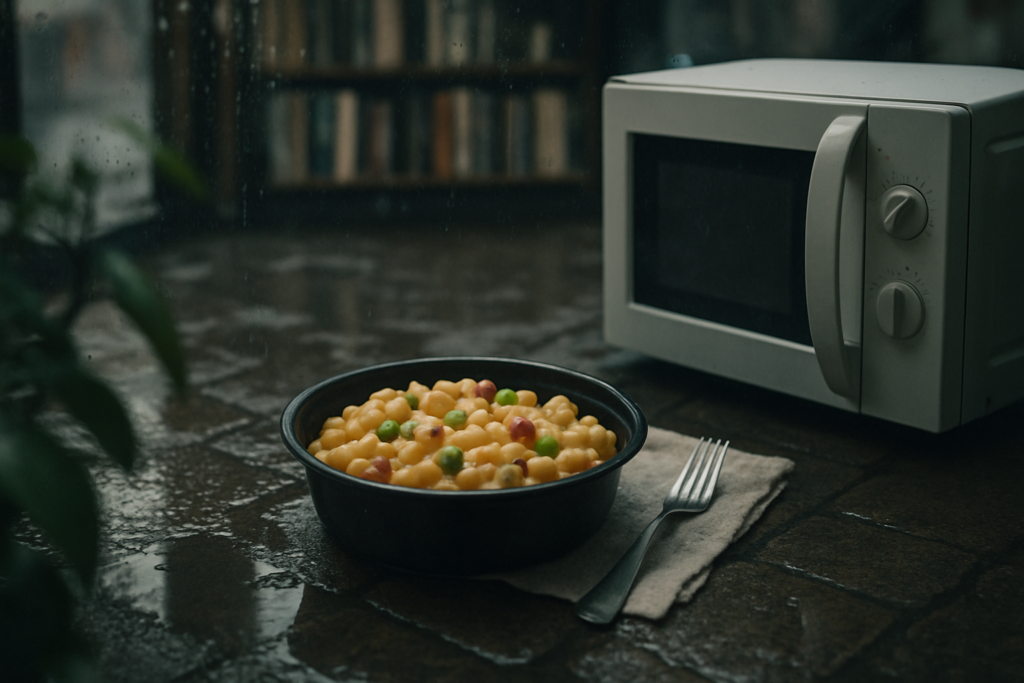What is Snapchaudas?
Snapchaudas is a Sanskritbased term that refers to the offering of fresh, untouched food to a deity before anyone consumes it. It’s rooted in the philosophy that the first and best serving should be a grateful offering, a way to honor both the food and the divine presence believed to provide it.
Traditionally, this ritual involves serving a small portion of every dish that’s been prepared, usually placed in front of an idol or sacred image in the home. No one takes a bite until this offering has been made. It’s a minor pause with major impact—reminding you to slow down, be thankful, and recognize the energy behind your daily sustenance.
Why It Still Matters Today
In today’s fastpaced world, we’re often multitasking during meals—scrolling through phones, replying to emails, or wolfing down food between meetings. snapchaudas pulls us in the opposite direction. You have to stop. Breathe. Focus. It becomes a moment of deliberate attention, a rare thing in the noise and speed of modern life.
This isn’t about religious compulsion—it’s about connection. Taking seconds to offer food before consumption can ground you, invoke humility, and help build gratitude. And science agrees: when you’re mindful before eating, you digest better, feel more satisfied, and even make healthier choices.
Snapchaudas at Home
You don’t need a fancy setup to start. No gold plates or elaborate rituals required. Here’s how to make snapchaudas part of your daily rhythm:
Designate a space: A small, clean spot in your kitchen or dining area works. Use a specific dish: A small bowl or plate that you only use for offerings helps build mental separation. Create the habit: Before serving yourself or others, take a pinch or spoonful of each item and place it on the offering dish. Pause for a moment: Close your eyes, bow if you feel inclined, or simply breathe and focus.
The Food Rules
There are some basic principles people follow. Food should be:
Fresh and homemade when possible Untasted and pure, meaning no one has sampled it before the offering Cooked with clean hands and in a peaceful mindspace
No, you don’t need to be perfect every time. The intention matters more than rigid rules. What’s important is that the food is prepared and given with respect and sincerity.
Applying it Beyond the Kitchen
The concept of snapchaudas isn’t limited to meals. It’s a mindset of offering first, taking second. You can extend that philosophy to other areas:
Time: Dedicate the first few minutes of your day to reflection or service before diving into tasks. Money: Consider donating a portion of your income before spending on yourself. Talent: Apply your skills to help others before seeking personal gain.
This attitude of giving first shifts your relationship with what you have. It keeps consumer drive in check and fosters a more balanced, thankful everyday life.
Teaching Kids Through Snapchaudas
If you’ve got young ones at home, this is an easy and effective practice to pass down. It teaches them patience, respect for food, and the value of small rituals.
Get them involved:
Let them help prepare the little offering dish Talk about the reason behind the practice Make them the official “food offerer” during family meals
Soon, it becomes second nature. Not just another chore—but a meaningful link between meals and mindfulness.
It’s Not About Religion—It’s About Reverence
While rooted in spiritual customs, snapchaudas doesn’t have to be religious. You don’t even have to belong to a specific faith to practice it. What matters is the essence: acknowledging the source before consuming the goods.
It’s a pause. A breath. A nod to the invisible chain of effort that brought nourishment to your plate. And that can be appreciated by anyone, regardless of belief system.
Final Thought: Intention Over Perfection
The beauty of snapchaudas is its simplicity. It doesn’t demand perfection. You’ll forget, rush, or miss a day. That’s okay. What counts is the growing intention to create a habit of gratitude and awareness.
Add it to your daily routine, not as a burden, but as a reset button. One that reminds you that even the most everyday activity—eating—can become an act of connection and grace. And in a world full of rush and noise, that kind of pause is both rare and powerful.


 Founder
Nicoleine is the visionary behind Food Meal Trail, dedicated to inspiring healthier eating habits. With a passion for culinary arts and nutrition, she combines her expertise to provide readers with innovative meal ideas and cooking techniques. Nicoleine believes that food should be both nourishing and enjoyable, and she is committed to sharing her love for wholesome cuisine with the world.
Founder
Nicoleine is the visionary behind Food Meal Trail, dedicated to inspiring healthier eating habits. With a passion for culinary arts and nutrition, she combines her expertise to provide readers with innovative meal ideas and cooking techniques. Nicoleine believes that food should be both nourishing and enjoyable, and she is committed to sharing her love for wholesome cuisine with the world.
